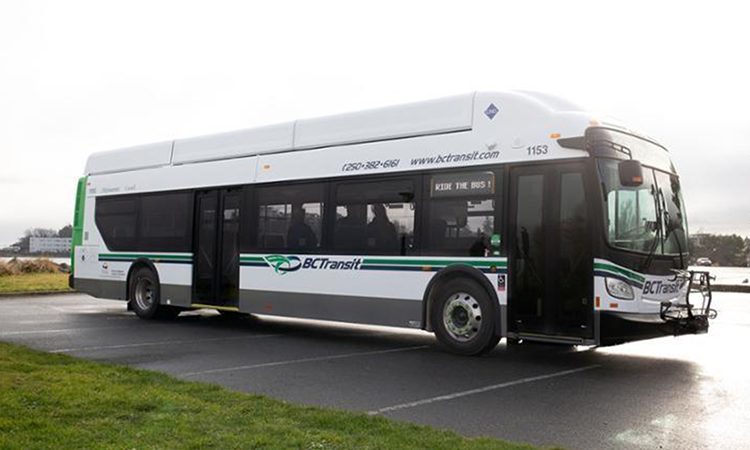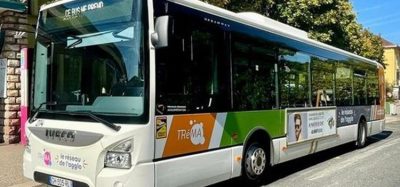Victoria Regional Transit System upgrades fleet with 44 new buses
- Like
- Digg
- Del
- Tumblr
- VKontakte
- Buffer
- Love This
- Odnoklassniki
- Meneame
- Blogger
- Amazon
- Yahoo Mail
- Gmail
- AOL
- Newsvine
- HackerNews
- Evernote
- MySpace
- Mail.ru
- Viadeo
- Line
- Comments
- Yummly
- SMS
- Viber
- Telegram
- Subscribe
- Skype
- Facebook Messenger
- Kakao
- LiveJournal
- Yammer
- Edgar
- Fintel
- Mix
- Instapaper
- Copy Link
Posted: 20 February 2023 | Intelligent Transport | No comments yet
In order to enhance the safety and convenience of transit riders, Victoria’s transit system has added 44 new compressed natural gas and double decker buses, including features such as USB ports, bike racks and full driver doors.


Credit: BC Transit
BC Transit has announced that 44 new buses have been added to the Victoria Regional Transit System in the last quarter of 2022, in order to help secure safe and efficient transportation for transit riders across the region.
The new arrivals include 15 medium-duty and 21 heavy-duty compressed natural gas (CNG) buses to replace diesel buses at the end of their service life. Eight double decker diesel buses have also been added to the local fleet as expansion buses. These additions bring the total number of CNG buses operating in the Victoria Regional Transit System to 101.
All 44 buses are equipped with passenger USB ports, bike racks that accommodate three-inch tires, white LED destination signs and full driver doors designed to protect the health and safety of drivers and passengers.
The total passenger capacity is unique to each model:
- The 30-foot medium-duty CNG buses can carry 24 seated passengers and 20 standing passengers
- The 40-foot heavy-duty CNG buses can carry 35 seated passengers and 46 standing passengers
- The double decker buses can carry 80 seated passengers and 24 standing passengers.
European Commission proposes ambitious CO2 targets for buses and heavy-duty vehicles
The acquisition of CNG buses is part of BC Transit’s Low Carbon Fleet Program which strives towards a cleaner, greener fleet by 2040. This programme supports provincial targets for greenhouse gas emissions and aligns with CleanBC’s climate action goals. BC Transit also has CNG buses operating in the Central Fraser Valley, Kamloops, Regional District of Nanaimo and Resort Municipality of Whistler.
With this latest fleet arrival, Victoria now has 75 double decker buses operating in the regional system. Double decker buses contribute to climate action goals by having a higher capacity to transport more customers, which is important for heavily congested transportation corridors like the Westshore to downtown. BC Transit expects double decker battery electric buses to be part of future fleet replacement cycles.
The total investment for the 44 buses is just over $34.5 million. Funding has been cost shared through the Investing in Canada Infrastructure Program (ICIP), where eligible costs for infrastructure and fleet investments are shared between the Governments of Canada, the Province, local governments and other partners.
Under this funding partnership, the Government of Canada has contributed more than $13.7 million, while the Province has contributed approximately $13.8 million and the Victoria Regional Transit Commission has funded the remaining, approximately $6.9 million.
If you liked this, you may also be interested in:
▶ U.S. government takes next steps to roll-out national network of EV chargers
▶ Metlink’s Tranzurban on track to recruit 75 new bus drivers
Related topics
Air Quality, Alternative Power, Fleet Management & Maintenance, Public Transport, Sustainable Urban Transport
Related modes
Bus & Coach
Related cities
British Columbia, Victoria
Related countries
Canada
Related organisations
BC Transit, Government of Canada, Victoria Regional Transit System








